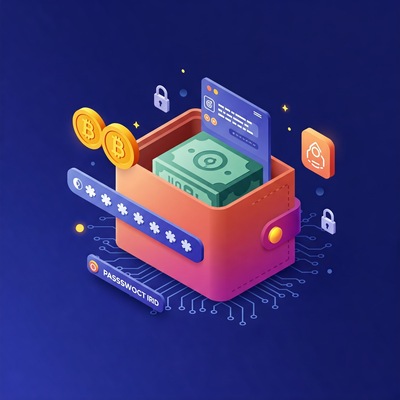Blog Post
Read our latest blog posts and stay updated with the latest trends and insights in the blockchain industry.
Explore a wide range of topics and discover valuable information that can help you enhance your knowledge and skills.


By Chaingateway
Oct 29, 2022
Managing supply chains from source to destination with the current technology is daunting. Several people are involved in the process, including international border crossing and transaction approvals. These activities ultimately slow down product shipping. Although these inefficiencies work towards securing the supply chain, we can do better to streamline supply chains.
The Current Supply Chain
Today’s supply chains deploy electronic transfer of documents, which has slightly helped to reduce paperwork. Still, these documents have to be validated to ensure no tampering. Verification is yet another costly and time-consuming process for shipping merchants and their clients. Eventually, consumers have to pay higher for products so that businesses make profits from their inputs.
The uptake of ecommerce has resulted in more customers shopping for items online. Consequently, the increasing demand for same-day delivery also piles pressure on retailers’ supply chain infrastructure. Customers want to track and trace the parcel shipment with transparency. Essentially, the efficiency of delivery services is now a key factor for any business that aims to beat the competition.
Revolutionizing Supply Chains
Blockchain – a fast-growing technology, aims to make a difference in supply chains through seamless logistics management. The decentralized architecture prevents document tampering and enhances the transparent traceability of goods in transit. This way, merchants and customers can rest assured of a secure and trustworthy supply of products. Here are some benefits that businesses will accrue by adopting blockchain solutions for supply chains:
Streamlining Logistical Operations
For any logistical operations, there likely are multiple stakeholders, locations, and conditions to be met. Parties have to constantly engage in processing documentation and assessing the progress of supplying products to different locations. By integrating blockchain frameworks, supply chain managers can securely automate these processes.
Data entered into a blockchain cannot be altered, hence ensuring accuracy and easy verification of processes along the supply chain. This convenience lifts the burden off the shoulders of importers and exporters who have to contend with tedious paperwork, harassment, and even delays.
The technology’s immutability also prevents the occurrence of duplicate orders and potentially fraudulent activities that are commonplace in today’s supply chains. Businesses can also leverage smart contracts that run decentralized apps (dApps) to automate logistical operations. Also, resolving supply chain disputes is easy, if there are any.
Enhancing Traceability
Any person whose product hasn’t reached the destination would like to know its location along the supply chain, possibly in real-time. For retailers, this process could be a nightmare as handle shipments of different sizes to millions of people. Today’s fragmented services are a clear indication of the strain on supply chains.
Integrating blockchain into your supply chain will provide customers with instantaneous and reliable information regarding the delivery progress. Paired with other technologies like Radio Frequency Identification (RFID), and IoT solutions, blockchain apps can help trace products in real-time. Better yet, in case of damage, retailers and manufacturers can correctly identify points where the incident occurred by reviewing data stored in the blockchain.
For manufacturers sourcing materials, blockchain solutions come in handy for determining where the resources come from. This process reinforces quality standards to ensure product safety.
Securing Financial Transactions
Logistical transactions attract fraud, with suppliers failing to deliver the desired products or customers failing to pay for products. To resolve this problem, logistic firms often ask users to insure their products, adding to the supply cost.
Blockchains, through smart contracts, allow participants to lock funds in escrows and release the money upon delivery. This way, both parties are relieved of taking risks as the transaction will proceed transparently without intermediaries or extra fees. Blockchains simplify business-to-business (B2B) payments and the verifiability of deliveries.
Optimizing Costs
A business that focuses on growth should continually find ways to limit spending while growing the value of its products. Despite the inefficiencies of supply chains today, businesses need the infrastructure to operate. As a result, firms incur huge costs that drive up the pricing to sustain operations.
A solution for supply chains, like blockchain, will free up resources for many businesses to expand and offer better products to consumers. Blockchain solutions will ensure your logistical operations are cost-efficient, with trust, security, and traceability.
Integrating Blockchain to Supply Chains
Can one practically adopt blockchain solutions for their supply chains? Simply, yes! Already, there are several dedicated decentralized protocols for enabling the easy, transparent, and verifiable transfer of documents for the maritime shipping sector. For retailers, supply chain management dApps will come in handy.
The supply chain industry is critical because it handles sensitive business and customer data. Preferably, businesses may choose to adopt private blockchains that restrict participants’ access to a transaction. However, this option is beyond reach for MSMEs and other businesses with limited resources.
Instead of building a blockchain protocol from the ground up, your business may opt for a Blockchain API to access all features of the blockchain reliably. A versatile blockchain API helps your business to efficiently implement blockchain solutions without necessarily building the infrastructure. The API allows you to easily connect to and leverage what blockchain has to offer.
With a blockchain API, you can offset supply chain inefficiencies and expand your operations across international borders. By integrating this technology, you have access to unbounded operations in foreign markets.
Overall, managing your supply chain via a blockchain API will help you in optimizing costs and repurposing your resources to improve products and service delivery. One such API, Chaingateway, allows you to connect to the blockchain without setting up your own nodes. This is helpful when you have no resources, expertise, or capacity to set up a protocol to manage the supply chain.
Key Takeaway Blockchain tech has the key to solving most supply chain problems in the current market. A business can accrue many benefits by correctly deploying blockchain to streamline and automate logistical processes. With the technology increasingly in demand, businesses with comparably limited resources can struggle to integrate such blockchain solutions. A simple-yet-effective and quite unique way to go around this hurdle is by leveraging an all-purpose Blockchain API. That way, you can transform your supply chain into a transparent, secure, and efficient logistics infrastructure.
Share This Post
Enter your email to receive our latest newsletter.
Don't worry, we don't spam

chaingateway

chaingateway

chaingateway
Dive into the world of Tron and discover how this dynamic blockchain platform stands out with its high speed, low transaction fees, and developer-friendly ecosystem. Perfect for businesses and developers seeking cost-effective and scalable solutions, Tron offers a unique edge over Ethereum and Binance Smart Chain. Join us for a closer look at Tron’s growing appeal in the blockchain landscape!
Explore how Chaingateway.io's Tron Paymaster service transforms blockchain operations by automating TRX management and ensuring seamless transaction efficiency. Dive into the benefits of eliminating manual processes, optimizing resource management, and enhancing the user experience for developers integrating the Tron blockchain.
Learn how to receive crypto payments in Laravel using Chaingateway API. This tutorial covers generating wallets, handling webhooks, and verifying transactions for Tron and TRC20 USDT payments. Perfect for developers looking to integrate blockchain payments into their Laravel applications.